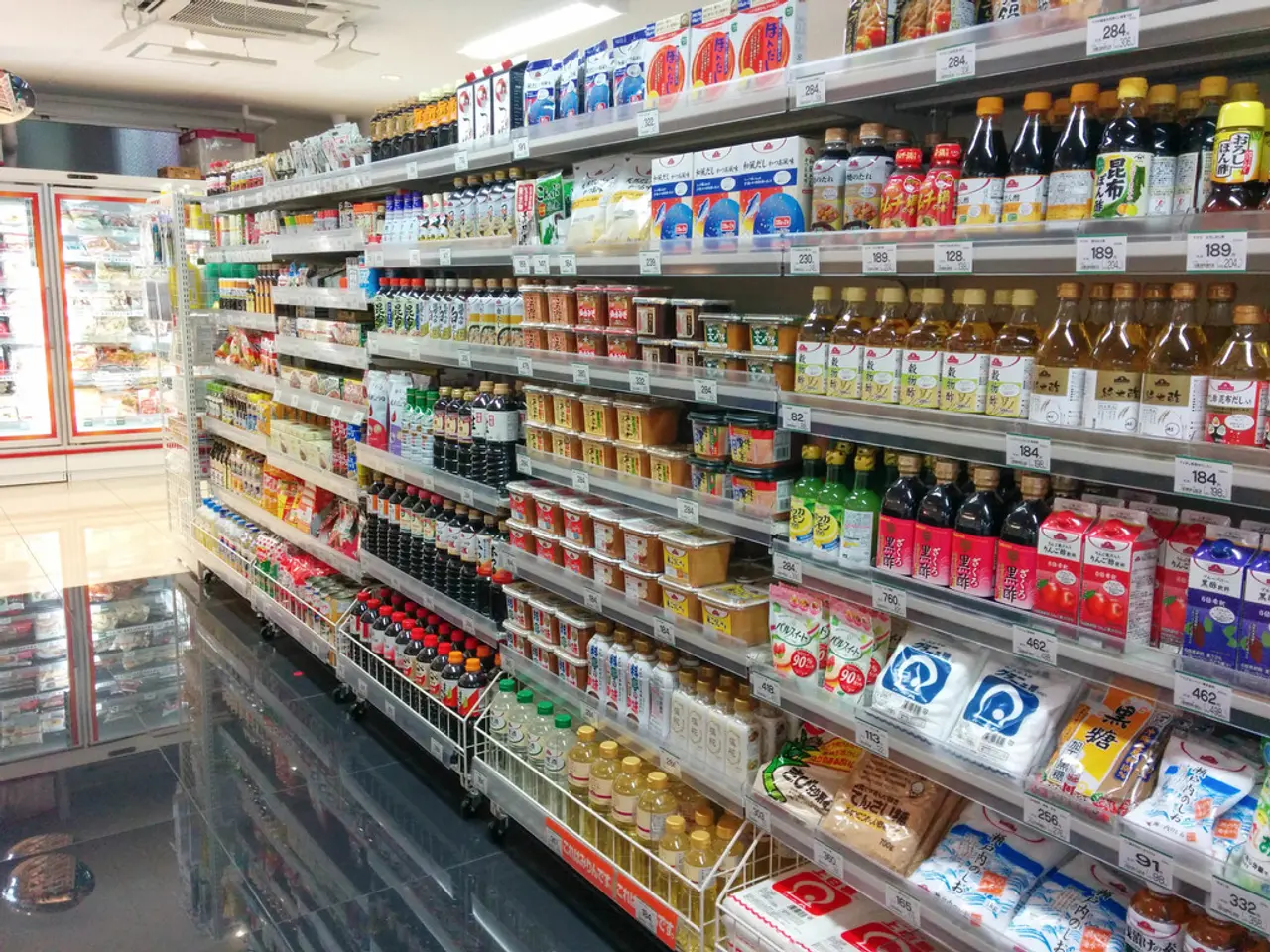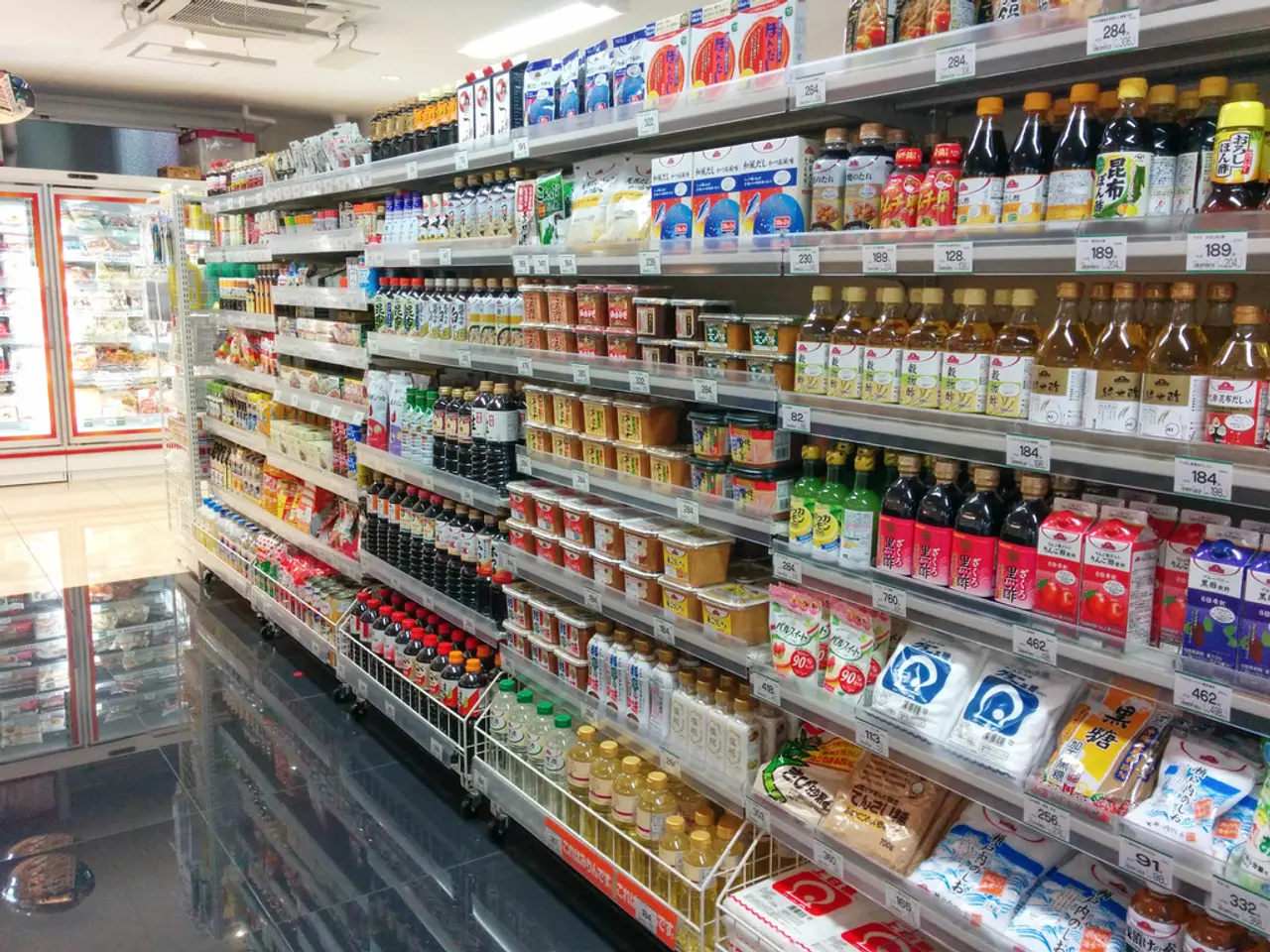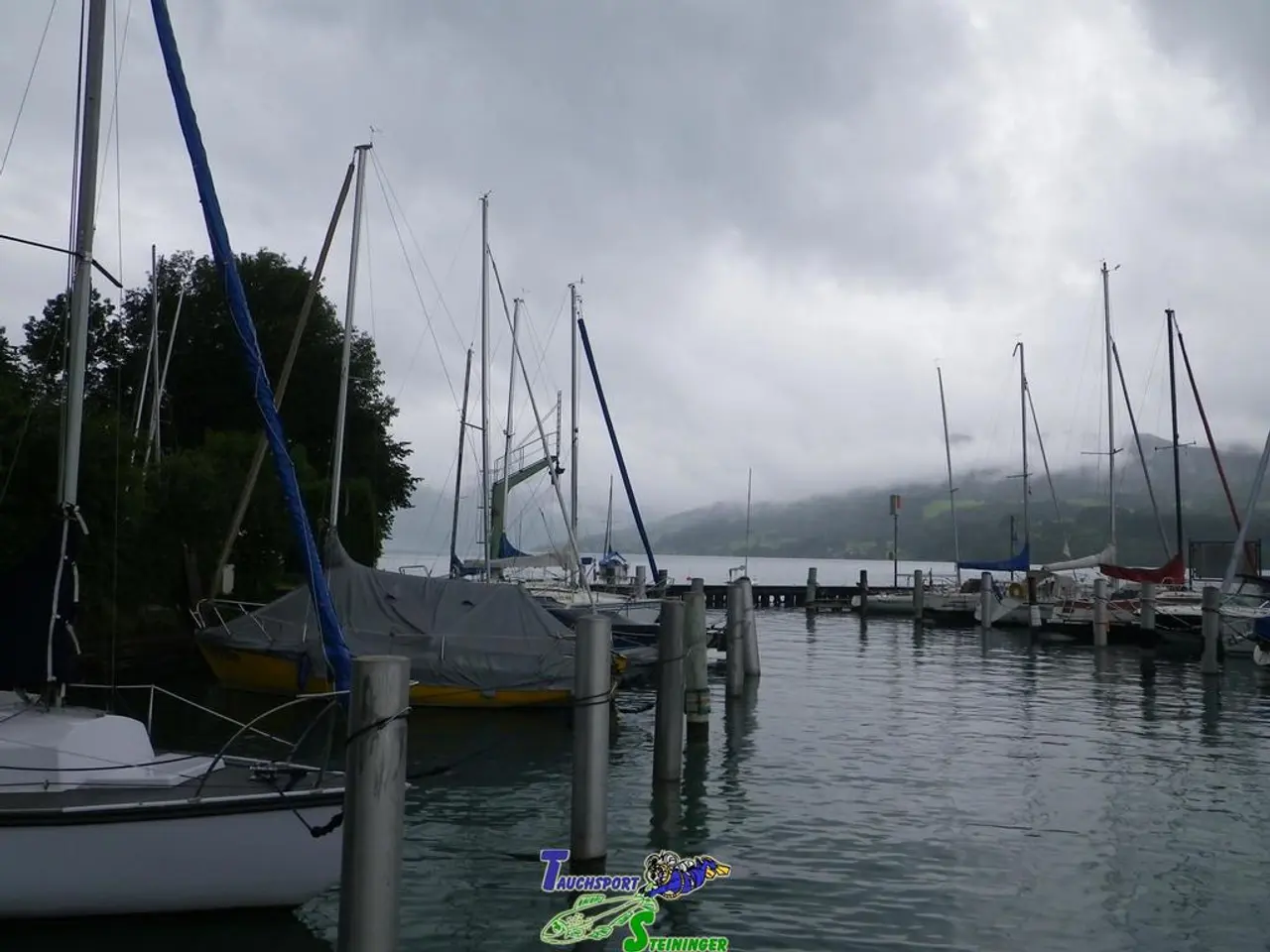Increased Tax Burden on Middle-Class Malaysians Targeting Higher-Priced Goods and Services
In a recent turn of events, the Malaysian government's levies on imported luxuries have resulted in significant price hikes for certain food items, causing concern among the public, particularly middle-class citizens like Yoong.
The price of air-flown Norwegian salmon has surged by 20% to 90 ringgit (HK$167) per kilogram, while imported cheese, nuts, cod, king crab, and berries have also seen an increase in prices. Surveys conducted in supermarkets around Kuala Lumpur have confirmed these observations.
However, a piece of good news for consumers is that imported apples and oranges remain exempt from the sales and services tax (SST), as announced by Prime Minister Anwar Ibrahim. This decision was made to maintain the affordability and availability of these fruits, especially since they are staples for many Malaysians and are not produced locally in sufficient quantities.
Despite this exemption, other imported fruits, such as berries and avocados, are subject to a 5% tax under the expanded SST regime, effective from July 1, 2025. This tax could potentially increase consumer prices for these items.
Yoong, a middle-class Malaysian, has expressed his dissatisfaction with the government, citing the rising cost of living as a major concern. He stated that life will be more expensive due to the levies on imported luxuries, and he will have to make choices regarding his spending due to the increased costs. His comments indicate a growing dissatisfaction among middle-class Malaysians regarding the government's policies.
Yoong identified himself as a proud Malaysian but not proud of the government's actions. He mentioned that the cost of top grade blueberries from the US is now up to 240 ringgit per kilogram, an increase from its previous price. The cost of air-flown Norwegian salmon has also risen to 90 ringgit per kilogram.
The Malaysian government enacted the levies on imported luxuries on Tuesday, but it is not clear if the taxes on apples and oranges were specifically discussed in terms of their price increases. The government's decision to exempt apples and oranges from the SST reflects its commitment to balancing revenue needs with the financial well-being of the population, particularly low-income groups.
This situation underscores the delicate balance the government must maintain between raising revenue and ensuring the financial well-being of its citizens, particularly in the face of rising costs of living. It remains to be seen how these developments will unfold in the coming months.
Yoong, a middle-class Malaysian, is grappling with the impact of the government's levies on imported luxuries on his personal finances, as the price of air-flown Norwegian salmon and top grade blueberries from the US have surged, making them unaffordable luxuries in the business of household shopping. This financial burden, he believes, warrants a reconsideration of the government's education policy, as financially stressed individuals may struggle to invest adequately in their children's education, potentially affecting the nation's future workforce and entrepreneurial landscape.




